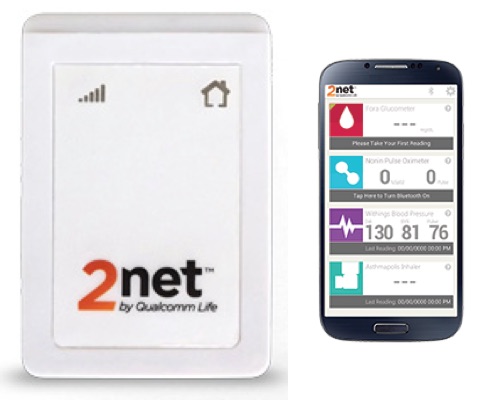 According to a report in Bloomberg, GlaxoSmithKline is in talks with Qualcomm to create a new joint venture to develop medical technology. Financial Times added in its report that the JV could be worth up to $1 billion.
According to a report in Bloomberg, GlaxoSmithKline is in talks with Qualcomm to create a new joint venture to develop medical technology. Financial Times added in its report that the JV could be worth up to $1 billion.
Very little information about the prospective partnership is available, but it makes sense for both companies: Qualcomm has already teamed up with both Roche and Novartis on major deals and GSK has dabbled in a number of areas of digital health.
Qualcomm announced its Novartis deal at CES in 2015, saying that Novartis will use Qualcomm Life's 2net platform and various connected devices to collect medical data directly from clinical trial participants in their homes. The first trial evaluated the use of mobile devices for patients with chronic lung conditions. According to Qualcomm, the study "leverages 2net mobile-enabled smartphones and 2net Hubs to seamlessly collect and aggregate biometric data from medical devices and transmits this data to the cloud-based 2net Platform, which securely sends the data to the study coordinator."
Around the same time, they also announced a similar partnership with Roche's Point of Care product suite, which includes back-end testing systems for anticoagulants, blood glucose, blood gas and electrolytes, and urinalysis. The partnership will initially focus on anti-coagulation meters but could expand into these other areas as well.
A few weeks later, at JP Morgan, Qualcomm and Novartis teamed up again to set up a $100 million fund to invest in "technologies, products or services that 'go beyond the pill' to benefit physicians and patients".
This year, the two teamed up once again to develop a connected version of Novartis' inhaler, Breezhaler, for people who have COPD. Specifically, Qualcomm Life will develop the reference design for the module that will connect the Breezhaler to the Qualcomm Life 2net platform, allowing 2net to collect data on inhaler usage, including the duration of the patient's inhalation, which Novartis said indicates quality of the inhalation.
One GlaxoSmithKline deal also revolved around the connected inhaler space: In December, GlaxoSmithKline and Madison, Wisconsin-based Propeller Health announced a partnership in which Propeller will develop and manufacture a custom sensor for GSK's Ellipta inhaler for COPD patients.
Like the other inhaler sensors Propeller has developed, the device will record when and where the patient uses the inhaler and wirelessly transmit that information to GSK researchers, who will use it to draw inference about patient adherence patterns and use those learnings when creating new drugs and developing treatment protocols.
At the end of 2014 GSK investigated another digital health technology, working with data startup Medidata and sensor makers Vital Connect and ActiGraph to evaluate the impact of wearable sensors in clinical trial settings.
Notably, GSK also scored above average in both number of apps and number of downloads in a Research2Guidance report about apps from pharma companies, and it scored second -- albeit a distant second -- in a major IMS report on which pharma companies were the best at social media that came out at the start of the year.
















